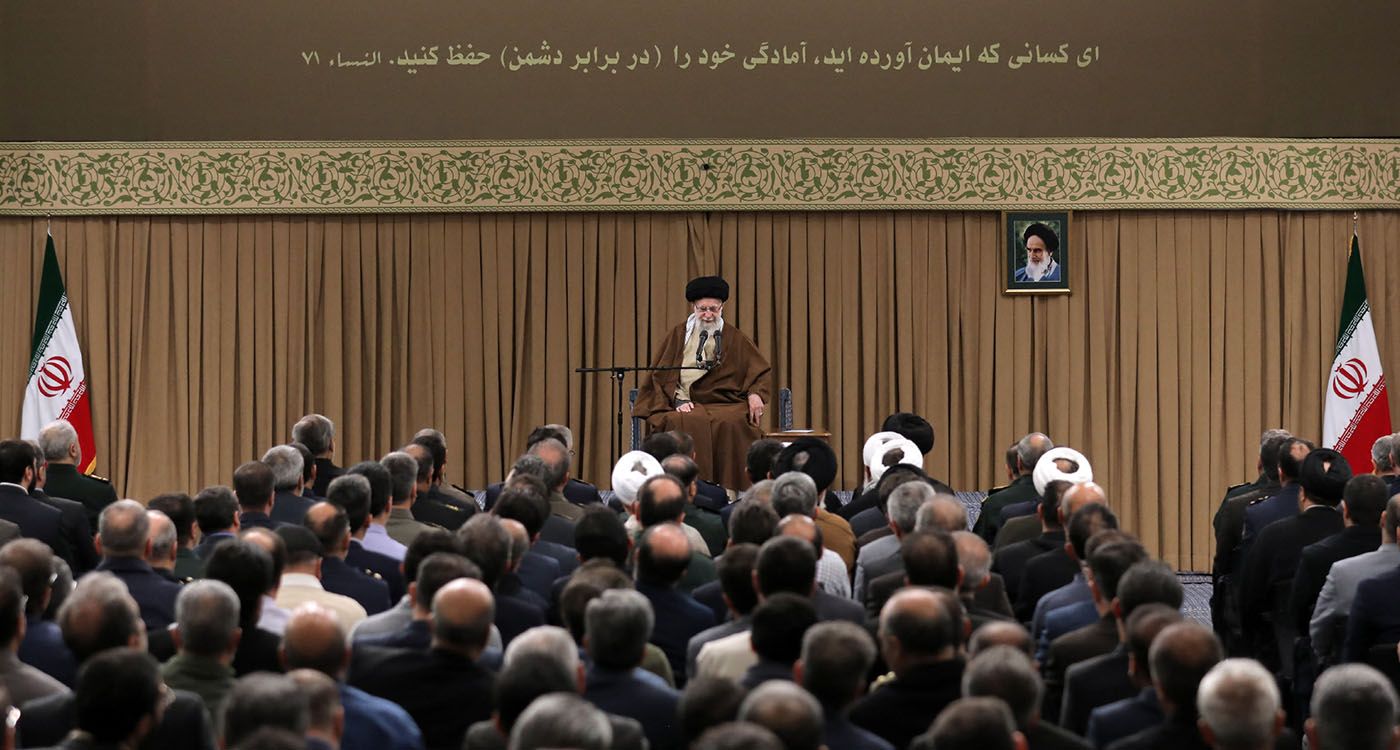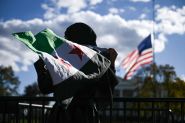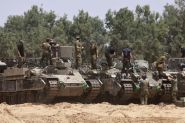- Home
- Middle East
- Washington-Tehran Dialogue: A Question of Trust

©AFP PHOTO / HO / KHAMENEI.IR
Can the leaders of the Islamic Republic of Iran be trusted? Should they be? Are they truly serious, strategically speaking, in their talks with the Trump administration? Are they genuinely capable of pursuing a path toward reintegration into the international community — with all the implications this would entail — and of breaking free from the ideological constraints of wilayat al-faqih, the system established by Ayatollah Khomeini but widely contested within Shia societies in Lebanon, Iraq, and even Iran itself?
Are Iran’s leaders — more precisely, the standard-bearers of the Revolutionary Guards (the regime's radical wing) — intellectually capable of choosing a path similar to the one initiated with the creation of the European Coal and Steel Community in April 1951? The political and strategic aim of this post-World War II initiative was to make any future armed conflict between France and Germany — and more broadly across Europe — "unthinkable" and even "materially impossible," as French Foreign Minister Robert Schuman underscored in his groundbreaking speech on May 9, 1950.
Do the leaders of the mullahs' regime in Tehran possess the political courage, clarity, open-mindedness (most importantly), and pragmatic strategic vision necessary to pursue a remotely similar path?
All of these questions have taken on a crucial, existential character (in every sense of the word) and must be raised with complete transparency and decisiveness in the wake of the ongoing US-Iran discussions. This is precisely where the true issue with Tehran and the course of action of the Islamic Republic’s leadership lies.
If Khomeini’s followers are genuinely serious about dialogue with the United States and a policy of opening up, they must not only accept the complete dismantling of their nuclear infrastructure and facilities but also abandon their ballistic missile development program. Most crucially, they must resolve the insurmountable obstacle of their unconditional support for proxies that knowingly fuel armed conflicts, escalate instability, and spread strife across the region.
Only then could we believe that the mullahs’ regime has made a genuine decision to turn a new page in its relations with the world and its regional environment — and to build a future based on prosperity and the well-being of its people, free from self-destructive, fruitless, and aimless wars.
At this stage, however, the decision-makers in Tehran are sending rather negative signals on this front, either directly or through their proxies. Iranian Foreign Minister Abbas Araghchi repeatedly asserts that his country is only willing to discuss the nuclear issue with US interlocutors, effectively excluding from the outset the equally contentious issues of ballistic missiles and the Revolutionary Guards' regional expansionism.
In this context, one might understandably harbor serious doubts about the true intentions of the pro-Khomeini factions — especially given that, for nearly 25 years, Iran has led the West through the twists and turns of endless negotiations over its nuclear program, ultimately reaching a uranium enrichment level of 60 percent — dangerously close to the 90 percent threshold required to produce a nuclear bomb.
In Lebanon, Hezbollah is gradually, step by step, working to undermine the substance of UN Security Council Resolution 1701 and the ceasefire agreement with Israel reached last November. This is the same strategy the group employed in 2006, when it systematically transformed all of southern Litani — the entire UNIFIL area — into a vast military base and massive weapons warehouse, in blatant violation of the same UN resolution it now seeks to undermine.
Once again, Hezbollah refuses to hand over its arsenal to the state, stubbornly insisting that Resolution 1701 does not apply to the area north of the Litani River, despite the document’s explicit provisions.
In its standoff with the West, the Iranian regime holds a key advantage: time, which works against Western democracies. When facing significant pressure and unfavorable circumstances, Tehran temporarily yields, pretending to negotiate and adopt a policy of openness — only to rebound stronger, wielding its claws more fiercely once the storm has passed.
Adopting an excessively conciliatory stance in bilateral negotiations with such a regime amounts to capitulating to its strategy, allowing it to regain its footing, and — most importantly — condemning the populations of the region to a cycle of continuous destabilization and endless military adventures.
Read more




Comments